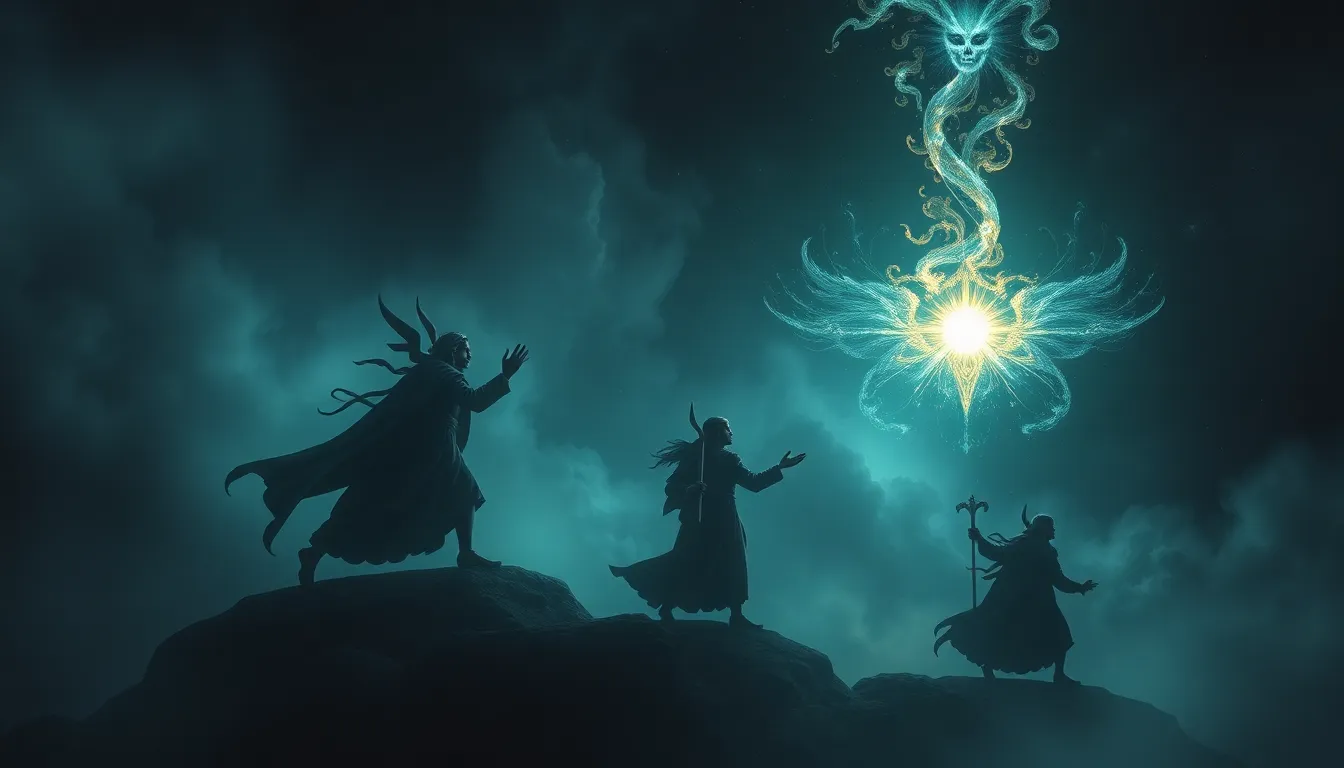From Fear to Courage: Transformative Tales of Empowerment in Myths
I. Introduction
Myths are traditional stories that embody the beliefs and values of cultures around the world. They serve as a bridge between the past and present, offering insights into human experiences and the universal themes that define our existence. One such theme is the transformative journey from fear to courage, which resonates deeply in mythological narratives.
This article aims to explore various tales of empowerment found in myths, showcasing how characters navigate their fears and emerge stronger. By examining these narratives, we can glean valuable lessons about resilience, bravery, and the human spirit.
II. Understanding Fear in Myths
Fear often acts as a catalyst for character development in myths. It is a universal emotion that shapes the actions and decisions of mythological figures, prompting them to confront challenges and evolve.
Common fears depicted in myths include:
- Fear of the unknown
- Fear of loss
- Fear of failure
Several mythological figures exemplify these fears. For instance, the hero Odysseus from Greek mythology grapples with his fear of the unknown as he embarks on a perilous journey home after the Trojan War.
III. The Archetype of the Hero’s Journey
Joseph Campbell’s concept of the Hero’s Journey outlines a universal pattern found in many myths. This framework consists of several stages that heroes typically undergo:
- Call to Adventure: The hero receives a challenge that sets them on their path.
- Trials: The hero faces various obstacles that test their resolve.
- Transformation: The hero overcomes their fears and emerges changed.
Examples of heroes who exemplify this journey include:
- Perseus, who confronts the fearsome Medusa
- Frodo Baggins, who carries the burden of the One Ring
IV. Myths from Different Cultures: A Comparative Analysis
Exploring myths from various cultures reveals the shared theme of confronting fear:
A. Greek Myths: Perseus and Medusa
In Greek mythology, Perseus is tasked with slaying Medusa, a creature whose gaze turns people to stone. His journey illustrates the transition from fear to courage as he learns to confront his terror with cleverness and bravery.
B. Norse Myths: Thor and the Serpent Jörmungandr
Thor, the Norse god of thunder, must face Jörmungandr, the Midgard Serpent. This myth highlights the courage required to confront formidable foes, emphasizing that true bravery comes from facing one’s fears head-on.
C. Indigenous Myths: The Tale of the Two Wolves
This Native American story tells of a grandfather teaching his grandson about the battle between two wolves within each person: one representing fear, anger, and hatred, and the other embodying love, hope, and courage. The moral is that the wolf that wins is the one you feed, illustrating the power of choice in overcoming fear.
V. The Role of Mentorship in Overcoming Fear
Mentorship is a vital theme in many mythological stories, providing guidance to heroes as they face their fears. The relationship between mentors and mentees often serves as a catalyst for growth and empowerment.
Examples include:
- Merlin and Arthur: Merlin guides Arthur in his quest to become a great king, helping him navigate his fears.
- Yoda and Luke Skywalker: Yoda teaches Luke to confront his fears and embrace his destiny as a Jedi.
VI. Symbolism of Trials and Challenges
Trials are significant in mythological narratives, representing the challenges heroes must overcome to achieve greatness. These trials often symbolize the internal struggles faced by individuals.
For example, Hercules’ Labors present a series of daunting tasks that test his strength and character. Each labor signifies a step towards personal growth and empowerment, illustrating that overcoming obstacles can lead to profound transformation.
VII. Transformation through Self-Discovery
The journey from fear to empowerment often involves an internal quest for self-discovery. Myths that emphasize this theme encourage introspection and personal growth.
One notable example is the story of the Buddha, who embarks on a journey seeking enlightenment. His path teaches that through understanding and confronting fear, one can achieve inner peace and empowerment.
VIII. Modern Interpretations of Mythical Empowerment
Contemporary stories frequently draw inspiration from ancient myths, echoing themes of empowerment and the journey from fear to courage.
Case studies include:
- Films: Movies like “The Lion King” and “Harry Potter” depict characters overcoming fears and embracing their destinies.
- Literature: Books such as “The Alchemist” explore the theme of personal transformation through the pursuit of one’s dreams.
The relevance of these themes in today’s society underscores the enduring power of myths to inspire and empower.
IX. The Psychological Impact of Myths on Fear and Courage
The art of storytelling plays a crucial role in personal empowerment. Myths can provide frameworks for individuals to understand their fears and draw courage from the experiences of others.
Psychological theories related to fear and courage often highlight the importance of narratives in shaping our understanding of difficult emotions. Engaging with myths can serve as a therapeutic tool, helping individuals confront and overcome real-life fears.
In conclusion, myths serve as powerful narratives that illustrate the transformation from fear to courage. By examining these tales, we can find inspiration and guidance in our own journeys, fostering empowerment in the face of adversity.



